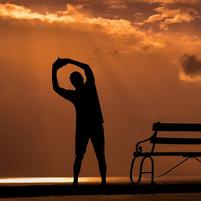Throughout history, different societies have perceived people who are relatively young, with smooth skin and ‘well-proportioned’ bodies, as beautiful. In an era of population ageing, this is something of a problem. It seems that the desire to stay beautiful, as well as social pressure to do so, and anxiety about failure in this regard, are all becoming increasingly manifest in older people. Various industrial, technology and social movements are trying to respond to the phenomenon at the same time as ideas about beauty are being redefined to become more inclusive.
The cosmetics industry has long focused on youthful looks and has reaped substantial gains with anti-ageing products and services. To prevent people from looking old has been the mainstream of the attempts to stay beautiful. New trends have further shifted from anti-ageing (reaching USD 27.29 billion by 2026) to embracing ageing. More and more main brands and start-ups are focusing on beauty products for people over 50s. Even pharmaceuticals are investing in more R&D pipelines for the lucrative opportunities in this area. The fashion and media are projecting more images of glamorous and elegant older people recalibrating their imagery in line with the shifting demographics. Even so, what is picked out and highlighted as beautiful remains the same (e.g. slender figure, thick hair, plump lips, and perfect teeth for women), which may well reinforce the insecurity of many elderly.
The new market being developed by the fashion industry is paralleled by a surge of products and services to maintain a healthy body and a healthy mind. The fitness industry has seen large growths in membership among the older population. In Japan, many gyms are nowadays dominated by the elderly. Rugby clubs are recruiting senior players, some even over 90s. And there are spin-offs for healthcare and insurance. It is arguable that the ability to maintain physical fitness and human contact is replacing traditional status symbols, such as expensive cars and other luxury goods. More and more seniors are taking on outdoor adventures. They form new communities, expand the tourist industry and capture many well-being benefits for themselves. A combination of physical activities, new experiences and social inclusion stimulates personal confidence, is good for body and mind, and is likely to prevent chronic diseases, even perhaps dementia.
As we might expect, digitalisation and new technologies are actively exploring new ways to facilitate the desire to stay healthy and attractive. Developers of so-called beauty devices (e.g. Panasonic, Procter and Gamble and Philips) are working together with the cosmetics industry (e.g. L’Oréal, Shiseido) and the sector is projected to grow to more than 34 billion USD by 2024. Digital devices such as Apple Watch, Fitbit Fossil Sport are developing more lifestyle apps. specifically designed for senior users, an there is still a lot of scope to improve their inclusiveness. Older people are quickly becoming more digitally savvy and there is a growing market for innovative tools to promote and maintain physical and mental well-being.
More than twenty years ago, the idea of selective optimization and compensation was proposed as a psychological theory of successful aging. It refers to a developmental process that may be used by older adults when they give up goals which they can no longer accomplish and apply their efforts and resources towards those goals still achievable. We might think of personal beauty as a goal which people used to surrender as they got older. However, as the ageing population is unprecedently large and the baby boomers control a vast majority of economic, political and media influences, we can expect to see the traditional concept of beauty being extended to ensure that surrender is no longer the only realistic option. Digitalisation and new technologies will provide ever more services to the senior citizens. In the future, what is trendy and beautiful may cease to be the exclusive preserve of the young. Certainly, many older people will want to remain attractive and beauty consciousness will continue to be high. As our societies wrestle with demographic change, and we see the emergence of the super-elderly, we can expect to see significant cultural change.
About the Author:
Luc Yao is a Visiting Fellow at the Oxford Institute of Population Ageing. Luc is based in Darmstadt, Germany and is active in the display industry, related start-ups, and the Open Innovation networks. His research at the Institute focuses on the adjacent domains of population ageing, digital health and developing countries.
Opinions of the blogger is their own and not endorsed by the Institute
Comments Welcome: We welcome your comments on this or any of the Institute's blog posts. Please feel free to email comments to be posted on your behalf to administrator@ageing.ox.ac.uk or use the Disqus facility linked below.













